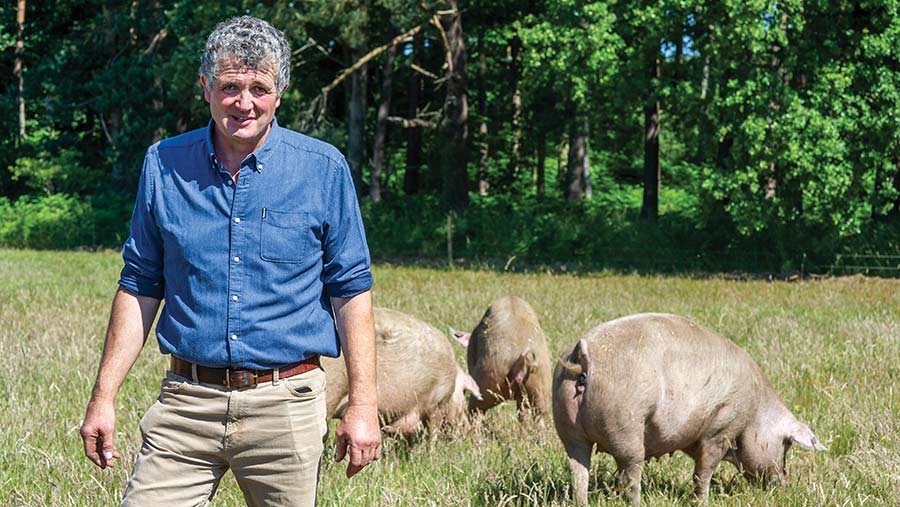Farmer Focus: Why is compound feed so hard to make?
 © Jaason Bye
© Jaason Bye I rarely mention pig feed in my column, which, as it’s our single biggest cost in pig production, is a bit of an oversight on my part. But here’s the thing…
Despite the fact I order close to 50t a week, with a price tag nearing £1m/year, the company I manage is not the feed mill’s customer.
See also: How mobile sperm analyser helps improve pig fertility
It’s a bit of a unique situation: I have full control over ordering, how it’s stored on our farm and ultimately, how efficiently and effectively it’s used.
But the people I work for, and answer to commercially, are not picking up the tab.
That might sound like a great arrangement, especially with volatile feed prices over recent difficult years. However, it does come with a few drawbacks.
When the quality of the feed we receive is poor – which I’m sorry to say it is all too often – or when the reliability of service provided crashes, I have very little power to complain and next to no clout to get things put right.
Unfortunately, it’s a complicated, ineffective chain of command that rather loosely connects me to the feed manufacturer.
Compounding feed stuff into pellets and larger rolls for animal consumption has been common practice in British agriculture for 80 years or more, so why are there issues?
We feed our group-housed sows about 3kg a day in long troughs made of steel, or more recently a much-improved model made from recycled plastic.
When the sows head off to farrow, they get an individual paddock and a specialist feeder designed to keep food dry and away from scavenging birds, so a sow can eat at the pace she wishes during the day.
At peak, a lactating sow eats 12kg a day, which I’m reliably told provides the same amount of energy as 115 Mars bars.
With that in mind, it’s little surprise that the food we use must be in perfect condition.
The inclusion of high levels of dust, or mould growths, will always affect palatability and, in turn, hurt milk production, body condition and fertility. I think a lot of issues stem from feed not being cooled before dispatch.
And on top of all that, everyone can tell I’m getting fed up with having to get bins unblocked and cleaned out professionally.

